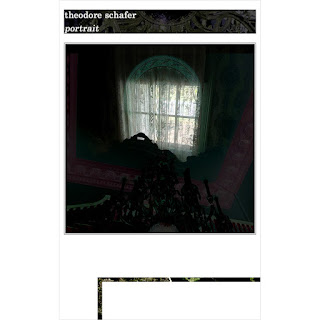Album Reviews: Bridgetown Records summer batch - "piano music"
It’s been a minute since we have heard anything from the
Bridgetown Records gawd Kevin Greenspon—but it looks like that minute is up
with the release of the June 2016 batch of cassettes.
In a sharp contrast from the usual fare from the label
(ambient, experimental, lo-fi) Greenspon has assembled a batch of three tapes
connected by one thing: the piano.
Creating a post-Basinski environment with the two pieces
included on Portrait, they are each
exactly ten minutes in length, and they sound like they were recorded on a
broken Walkman in a cavernous practice room on an old, out of tune piano—but
this only adds to the evocative, compelling nature of each composition.
“Garden Loop” begins on, and never really leaves, its
somber, melancholic tone—it’s a serious affair that unravels dramatically as
the notes continue to swirl around you; meanwhile, Portrait’s b-side, “Nola,” takes an even darker, more ominous turn,
with the resonating rumble that is present throughout much of the piece as
pensive and measured notes ripple out through the ether that is created.
On both pieces, the tape hiss from the recording is as much
of an instrument as the piano itself, giving Portrait an unnerving, dream-like quality that is difficult to
shake after you’ve finished listening.
The more charming and whimsical of the three releases, Naps
is the work of Jason Calhoun, who previously released a Bridgetown effort under
the moniker Paper Armies.
Clocking in at, like, 20 minutes total, Calhoun uses a
broken-sounding toy keyboard for all ten tracks on the album, adding to the
whimsy and charm, but also giving it a kind of a sad feeling as
well—specifically on the melancholic progression of the very aptly titled
“Happy,” or the bittersweet nostalgic feeling of the twinkling “Headache.”
Based on Calhoun’s choice of instrument, I wasn’t quite sure
what to make of Happy All The Time
during my first listen, but it’s the kind of album that reveals itself to you
slowly over time. If you let it, it becomes the kind of soundtrack you would
want to have while looking through old photographs, or recalling a specific
memory from your childhood.
The most theatrical sounding, but also the most
straightforward of the trio is De Leon’s Eastwestern—it’s
what you think of when you probably think of “piano music.”
Comprised of six pieces, each of them boasts big, powerful
sounding open chords, each of them becoming more dramatic in nature as the
album progresses. Throughout, De Leon shows command of the instrument—not
performing with virtuosity, but with a definite flare that resonates through
the music, like on the slightly less somber sounding and slightly more
accessible piece “Brain Shivers.”
In a world dominated by contemporary popular music, it’s
incredibly refreshing to hear something like Eastwestern (what I guess is commonly called “modern classical”),
especially to hear it released via an independent cassette label.
Released as a batch, because that’s what Greenspon commonly
does with Bridgetown efforts, the trio of cassettes obviously work very well
together given their common thread, but they also are strong enough to each
stand on their own when consumed separately, with each artist providing their
own and very different take on what “piano music” is to them and what it can
mean in 2016.
The three releases are available now digitally through the Bridgetown Bandcamp site, or on cassette from the Bridgetown homepage.
The three releases are available now digitally through the Bridgetown Bandcamp site, or on cassette from the Bridgetown homepage.


